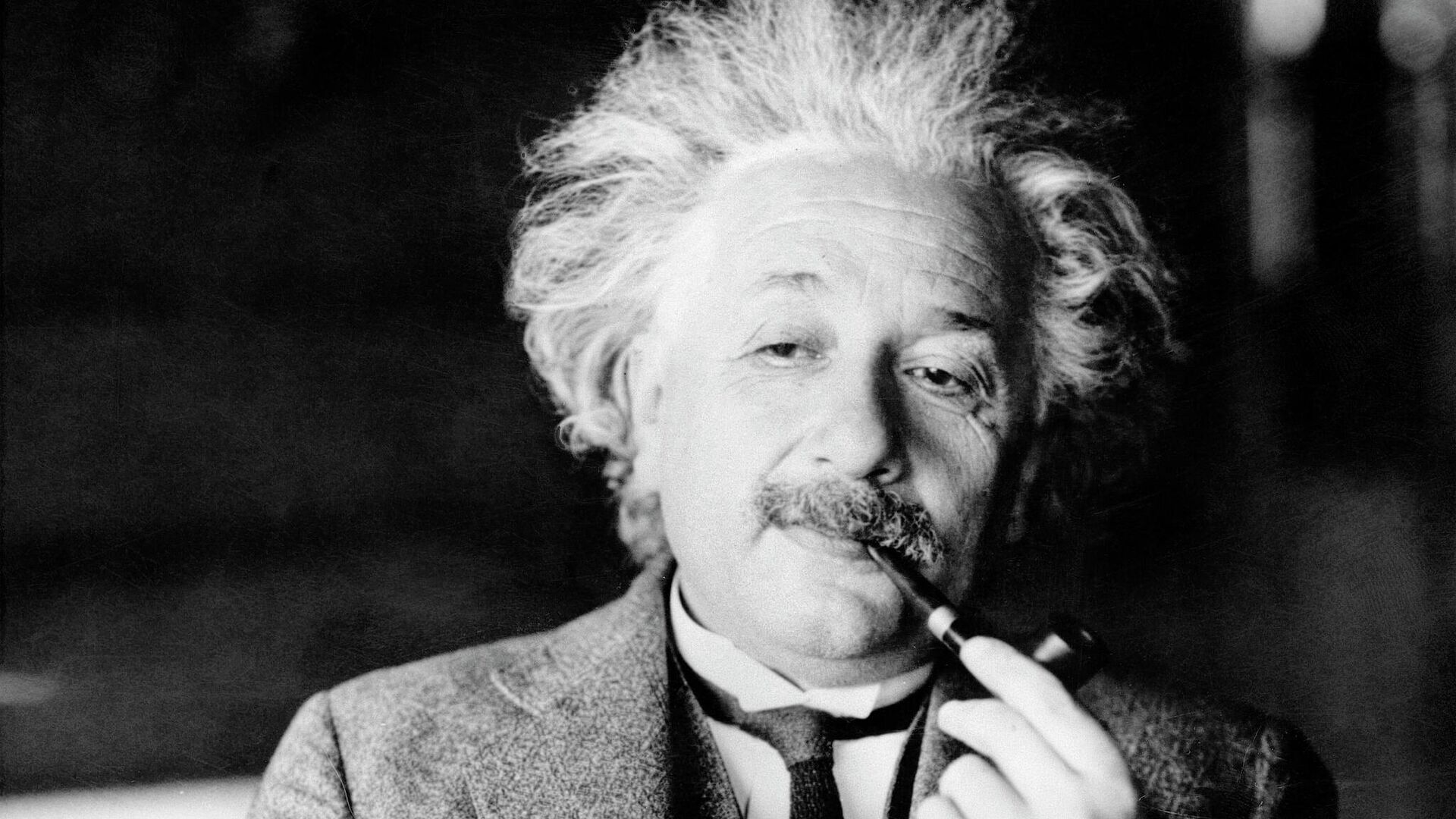https://sputnikglobe.com/20220513/cant-overcome-without-surgery-einsteins-letter-with-call-to-fight-nazi-germany-hits-auction-1095478365.html
'Can't Overcome Without Surgery': Einstein's Letter With Call to Fight Nazi Germany Hits Auction
'Can't Overcome Without Surgery': Einstein's Letter With Call to Fight Nazi Germany Hits Auction
Sputnik International
German-born Einstein, himself a Jew, left his home country after the Nazis came to power, given their anti-Semitism and revanchist military sentiments, which... 13.05.2022, Sputnik International
2022-05-13T04:01+0000
2022-05-13T04:01+0000
2025-04-07T11:01+0000
history
society
auction
albert einstein
letter
nazi
viral news
https://cdn1.img.sputnikglobe.com/img/07e6/05/0d/1095478799_0:199:2048:1351_1920x0_80_0_0_df924a7a3bb69ba01fc754840095c650.jpg
A rare letter penned and signed by famed physicist Albert Einstein urging international powers to adopt a tougher stance against Nazi Germany is set to be sold at an auction in little more than a week on May 24.The letter, auctioned by the Kedem Auction House in Jerusalem, Israel, is dated 1936 and addressed to Danish journalist Karen Stampe Bendix. It was written as Nazi Germany's threat to European Jews became more apparent, as well as Adolf Hitler's rising political extremism and warmongering.Einstein emphasized in the letter that given the current circumstances, there was no choice but to face Germany and even to take the initiative.The physicist urged the Danish journalist to find solace in her own circumstances, claiming that Denmark "is unthreatened by the impending turbulence" and promising her that "even if it is economically difficult, there is yet strange consolation in that no place on earth is in a better situation." That assumption, however, as we know, proved to be inaccurate when Nazi forces attacked and conquered Denmark in just six hours in 1940.Describing his refuge in the US, Einstein said that there was "heavy unemployment here as well, and unlike the situation in the past, [there is] a mood of pessimistic resignation with the state of affairs."Then, he also speaks about his wife's health and the living conditions in the New World. Last year, another pre-war letter of Einstein's, dated the summer of 1939, was sold at an auction. In that letter, written in English and addressed to William Morris, a German-Jewish immigrant who settled in the US and founded a talent agency, the scientist praised Morris' "splendid work" in assisting Jewish refugees.Einstein's private notes on the theory of relativity, which sold last year for a record multimillion-dollar sum at an auction in Paris, are also among the previous letters and notes written by him and sold at auction in recent months.
Sputnik International
feedback@sputniknews.com
+74956456601
MIA „Rossiya Segodnya“
2022
News
en_EN
Sputnik International
feedback@sputniknews.com
+74956456601
MIA „Rossiya Segodnya“
Sputnik International
feedback@sputniknews.com
+74956456601
MIA „Rossiya Segodnya“
history, society, auction, albert einstein, letter, nazi, viral news
history, society, auction, albert einstein, letter, nazi, viral news
'Can't Overcome Without Surgery': Einstein's Letter With Call to Fight Nazi Germany Hits Auction
04:01 GMT 13.05.2022 (Updated: 11:01 GMT 07.04.2025) Kirill Kurevlev
Managing Editor
German-born Einstein, himself a Jew, left his home country after the Nazis came to power, given their anti-Semitism and revanchist military sentiments, which the pacifist scientist completely rejected. Still, he figuratively had a hand in the creation of the US atomic bomb, convincing the authorities to begin its development with his letter.
A rare letter penned and signed by famed physicist Albert Einstein urging international powers to adopt a tougher stance against Nazi Germany is set to be sold at an auction in little more than a week on May 24.
The letter, auctioned by the
Kedem Auction House in Jerusalem, Israel, is dated 1936 and addressed to Danish journalist Karen Stampe Bendix. It was written as Nazi Germany's threat to European Jews became more apparent, as well as Adolf Hitler's rising political extremism and warmongering.
In it, the scientist, who was known as a passionate pacifist throughout his life, wrote: "There are diseases that cannot be overcome without surgery. I cannot deny this even though I abhor the knife."
Einstein emphasized in the letter that given the current circumstances, there was no choice but to face Germany and even to take the initiative.
"It would have been best to intervene already three years ago," he wrote. "Most regrettable is the feeble stance of England, insofar as it indeed postpones the start of war, but certainly cannot prevent it."
The physicist urged the Danish journalist to find solace in her own circumstances, claiming that Denmark "is unthreatened by the impending turbulence" and promising her that "even if it is economically difficult, there is yet strange consolation in that no place on earth is in a better situation." That assumption, however, as we know, proved to be inaccurate when Nazi forces attacked and conquered Denmark in just six hours in 1940.
Describing his refuge in the US, Einstein said that there was "heavy unemployment here as well, and unlike the situation in the past, [there is] a mood of pessimistic resignation with the state of affairs."
"On the other hand, the difficult circumstances here have not led to the heated political passions so familiar to us from Europe," he noted.
Then, he also speaks about his wife's health and the living conditions in the New World.
"We live in an old, pretty house in picturesque surroundings… but I am still plagued by an unimaginable flood of letters," he said.
Last year, another
pre-war letter of Einstein's, dated the summer of 1939, was sold at an auction. In that letter, written in English and addressed to William Morris, a German-Jewish immigrant who settled in the US and founded a talent agency, the scientist praised Morris' "splendid work" in assisting Jewish refugees.
Einstein's private notes on the
theory of relativity, which sold last year for a
record multimillion-dollar sum at an auction in Paris, are also among the previous letters and notes
written by him and sold at auction in recent months.

